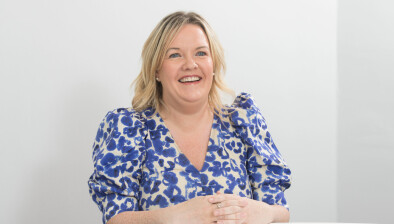Neil Norman: Huge challenges of targeting tax rises

Neil Norman
Neil Norman, head of entrepreneurial tax and senior tax partner at Chiene + Tait, discusses the issues surrounding potential changes to taxation in light of the COVID-19 pandemic.
The financial impact of Covid-19 will become clearer in six weeks’ time when Rishi Sunak will deliver a budget to the House of Commons.
It could very well contain some initial tax rises aimed at clawing back some of the significant public expenditure incurred due to the pandemic, especially on the furlough scheme which has cost the UK Government over £50bn to date.
Amid the flurry of anticipation about where the Chancellor is likely to look to raise extra funds and by how much, it appears the two most likely areas that will be targeted are capital gains tax (CGT) and corporation tax (CT), both of which are highly divisive in terms of their economic impact.
CGT is often seen by Treasury officials as the least politically troublesome area to target, although many wealth creators believe that it should never have been introduced in the first place. Because investments can only be made using income on which tax has already been paid, CGT provides a second bite of the cherry for HM Treasury.
The Office of Tax Simplification (OTS) recommended in November that CGT rates should be moved to between 20 and 40% (under Scotland’s tax code this would translate to 19%-46%), whilst the annual CGT exemption should simultaneously be reduced from circa £12,000 to around £3,000. Given that £9.5bn was collected through CGT in 2018/19, implementing the OTS plan would, in theory at
least, generate around £10bn a year in extra tax should the Chancellor choose to move on these recommendations.
Corporation tax presents different but equally challenging issues for Mr Sunak. By maintaining a low level of CT, especially in the post-Brexit landscape, the UK is better-placed to promote itself as a competitive destination of choice for international companies. When such companies base themselves here, they hire people who tend to buy goods and services within the UK, which supports our economy, and pay income tax, national insurance and VAT. The net receipts from all these taxes dwarf those from CT. Therefore, while raising CT may be more politically acceptable than targeting other areas of taxation, keeping it at a lower level can be more economically expedient.
Ireland, with a competitive rate of 12.5%, provides a relevant example of how a lower level of CT can create wider economic benefits.
The stark fact facing the Chancellor is that the pandemic has cost huge sums of money which somehow and somewhere need to be recovered. The amount of support paid out since the Covid crisis began has safeguarded thousands of jobs but it is also jeopardising the UK economy by creating a borrowing spree, the likes of which has not occurred in my lifetime.
The stark fact facing the Chancellor is that the pandemic has cost huge sums of money which somehow and somewhere need to be recovered. The amount of support paid out since the Covid crisis began has safeguarded thousands of jobs but it is also jeopardising the UK economy by creating a borrowing spree, the likes of which has not occurred in my lifetime.
While a significant majority of the public will undoubtedly think that extra taxes on businesses and wealth creators is far preferable to more direct forms of tax rises, including income tax, targeting CGT and CT will deter economic growth which will ultimately impact on everyone. I do however expect these will be targeted by the Chancellor as they are more politically acceptable than many other tax rises.
With the budget quickly approaching while Scotland and the rest of the UK finds itself in another national lockdown for the foreseeable future, many question whether Mr Sunak will make his move on 3 March or defer these uncomfortable decisions to a later date.
What is certain, however, is that the only way to guarantee the current CGT rates will apply is for assets to be disposed of before 3 March.
It is, at least in part, for this reason that we are currently seeing unprecedented levels of corporate restructuring activity including mergers and acquisitions, management buy outs, share repurchases and employee ownership trusts being established. For those likely to be affected, it may be prudent to take action now but with only six weeks until the budget is unveiled there is much to be done.
Join Scotland's business professionals in receiving our FREE daily email newsletter








